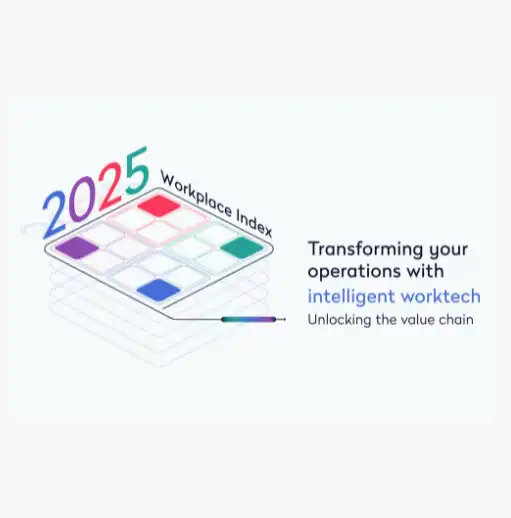In episode 156 of the Asset Champion podcast, host Mike Petrusky speaks with Derek Crager, PMP, CLSS, CSM, AWS-CP. He’s a visionary AI solutions architect and founder of Practical AI, where he focuses on bridging the gap between people and the knowledge they seek. They talk about how to empower employees with the right knowledge and tools for effective asset management. They then explore how Voice AI can deliver instant access to standard operating procedures, safety routines, and tribal knowledge in the built environment. Crager shares why he believes AI will not replace human jobs in facility maintenance but instead support and enhance them.
Agenda
- Practical uses of AI in facility maintenance and asset management
- Importance of empowering employees through knowledge and tools
- Potential impact of the Internet of Things (IoT) and augmented reality
What you need to know: Facility and maintenance takeaways
Takeaway 1: AI in facility management is about empowering employees, not replacing them
“AI will never replace our jobs, OK? It’s not a thing,” Crager says, adding that skilled professionals are too valuable and scarce to be replaced by machines in the next 50 years. He further explains that AI tools are designed to empower employees to perform better by providing them with the information and support they need.
With AI, “…we can empower every employee in our workforce to be as good as our best employee,” says. In fact, the right tools can document standard operating procedures, safety routines, and tribal knowledge, making it accessible to workers through voice commands or QR code scans, ensuring that they have the right information at the right time.
Takeaway 2: Capturing and leveraging tribal knowledge is crucial for business continuity and AI integration
“If one person holds the key to a process and there’s no system to capture it, that’s a risk for you and your company and the buildings you support,” Crager warns. He feels businesses should not wait until a key employee leaves to realize the value of the knowledge they possess.
His AI solution, Pocket Mentor, can address this issue by documenting and integrating tribal knowledge into a readily accessible system. “We document the SOPs, the standard practices, and the safety routines. We even document the tribal knowledge to make sure that it’s all there for whoever needs it to access it in an instant fashion,” he explains. The tool ensures that all employees, regardless of their experience level, can benefit from the expertise of the most skilled workers.
Crager’s advice on tribal knowledge connects with the broader theme of using AI to support human employees and ensure that critical information is not lost. “The future isn’t about replacing humans. It’s about helping them because we want them to become the best versions of themselves, and that only helps you as a business and as a company,” he explains.
Takeaway 3: Leading with empathy and curiosity is essential for successful AI adoption in facility management
“The tools will change, the tech will evolve, but if you stay curious and you focus on supporting your people, you’ll always be ahead,” he says. “We’re in this life together, you know, life isn’t a zero-sum game. The more we help each other out, the more we help ourselves.”
The changes won’t be immediate. “It takes about a generation for people to change,” he notes, highlighting the psychological aspect of technology acceptance. But by leading with empathy and curiosity, facility managers can better navigate the challenges of AI integration and ensure that their teams are prepared for the future.
Maintenance management insights
- AI will not replace human jobs in asset management but will enhance them.
- Pocket Mentor, a voice-first AI tool, can empower employees by providing instant access to standard operating procedures, safety routines, and tribal knowledge.
- Real-time monitoring through IoT can help predict maintenance needs, such as when bearings are failing or lubrication is leaking.
- The integration of augmented reality in facilities maintenance is still a challenge due to the high cost and durability issues of the equipment.
- Auditing tribal knowledge is crucial to mitigate risks associated with key processes being known only by a few individuals.
- Empowering employees with the tools they need, leading with empathy and curiosity, and staying curious about evolving technologies are key to staying ahead in the industry.
Take the Eptura™ Podcast Survey for your chance to win swag and then do a deep dive into more asset management insights by exploring all Asset Champion Podcast episodes.





